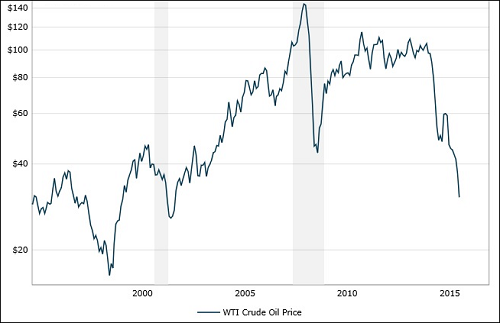Tina Fey gets down.
On Sarah.
I just adore Ian Welsh's savvy economics reporting. He delineates the confusion many feel about Paul Krugman's political journey, ending in his recent Bernie Bash.
It must be pretty comfortable in bed with Hillary, or maybe it's just that all the serious people are in that bed.
So, Paul Krugman has a column in which he says he thinks Clinton has better policy proposals than Sanders:
As far as I can tell, every serious progressive policy expert on either health care or financial reform who has weighed in on the primary seems to lean Hillary. (emphasis mine)Ah. Serious.
Ok, Paul. Let’s bring up some history, Paul.
You supported Bernanke, strongly. Not just in his appointment as Federal Reserve Chairman, but during his tenure – during which he refused to do anything about the housing or financial bubbles.
Bernanke, for those who don’t know, was the man who plucked Krugman out of MIT and moved him to Princeton, where Krugman was a star. MIT had a lot of very brilliant economists, Princeton had very few.
Then, let us return to that word “serious.” For years, the word “serious” has been used to freeze out outsiders. “Serious” foreign policy experts are the most pernicious: They were virtually unanimous in their support for the Iraq war, for example.
We know how that went.
“Serious” almost always means you are part of the establishment.
Because of this, the “serious policy experts” are almost all wrong. Take Obamacare (ACA). It’s done some good, but a lot of problems have resulted in which people can’t use it because the deductibles are too high.
The serious people (like Krugman) who supported the ACA somehow didn’t predict this.
The un-serious people who opposed the ACA did predict it.
Serious.
Read it all here.
Paul Krugman Against Bernie Sanders
January 28 2016
Meanwhile, Krugman links to Paul Starr of "Politico" ("Politico," ok), who attacks Bernie’s “Medicare for All” policy.
Starr’s attack has three prongs:
- Bernie’s not viable in a general election because he is a “socialist” and Americans will never vote for that because they say they don’t like the word. Might be true, but head-to-head polls show Bernie doing just fine.
- Medicare-for-All can’t be passed, because it would involve a large tax increase.
- Medicare- for-All is a bad idea because it is inefficient and pays only 80 percent of costs.
It’s a bad sign when you’re misleading your readers. Here’s what Aetna has to say about Medical Cost Ratios:In general, the minimum percentage of premium health plans must spend on health care is 85 percent for large groups and 80 percent for small groups and individual policyholders.So, at most, a 5 percent difference.Starr also suggests that Medicare is less efficient. This is untrue. In fact, Medicare spends about 2 percent on administrative costs. Private health care plans spend about 17 percent.So, Medicare is more efficient and its ratio is only slightly less than the private ratio. If the US switched to a Medicare-for-All system, it would be simple enough to go to 85 percent and would still cost less.The international experience for single payer is that it costs about two-thirds what US healthcare costs.Even in a non-single payer system, Medicare has kept costs down better than private insurance:
- According to CMS, for common benefits, Medicare spending rose by an average of 4.3 percent each year between 1997 and 2009, while private insurance premiums grew at a rate of 6.5 percent per year. (See Table 13)
- According to a calculation by the National Academy for Social Insurance, if spending on Medicare rose at the same rate as private insurance premiums during that period, Medicare would have cost an additional $114 billion (or 31.7 percent).
Ok. So, Medicare-for-All would cost the Americans less than private insurance + ACA has. To try and deny this is like saying the sun doesn’t rise in the morning. It’s not not just wrong, it’s not just a lie, it is delusional.Would taxes have to be raised?Absolutely. But since Americans pay, y’know, premiums, if the tax raises were distributed properly (a.k.a. if corporations paid their fair share), most people would have more take-home money in the end, or corporations would be paying less for insurance. There have been cases of corporations going to Canada just to avoid having to provide medical insurance.That leads to the feasibility argument. Can Medicare-for-All be passed? Probably not. But it won’t be passed if the President doesn’t try, that I guarantee.It can be sold, however; Medicare is popular. And it is popular with the Republican base, I might add.Starr’s argument really comes down to obfuscation (that’s the polite word) and, “It’s not likely to pass so we shouldn’t try.”Sanders has been a member of Congress for a long time. If he can’t get what he wants, he’ll negotiate–that’s how it works. And he’ll get more because he’s starting from a stronger position.Meanwhile Clinton won’t even try.As for financial reform, it is hard to even . . . Sander’s position is “break up the too-big-to-fail banks” and “restore Glass-Steagall.” That includes breaking up the too-big-to-fail shadow banks. The Clinton position is that shadow banks should be regulated, but not broken up or subject to Glass-Steagall. Her position is the weaker position, and arguments otherwise are obfuscation, at best. Krugman obfuscates this in his actual post, suggesting that Sanders doesn’t think shadow banks are too big to fail.Krugman appears to have become so much a creature of the status-quo and New York elites he isn’t worth more than a casual dismissal.I feel bad about Krugman. I remember when he was essentially the only national columnist willing to take on George W Bush.But one can, I suppose, only expect so much from a man who spent his life at MIT, then Princeton, then writing for the "New York Times." I had hoped Krugman would be an exception.So, Paul:Or it could be because they are, one and all, corrupt corporate lackeys. I report, you decide.If it barks like a dog.I was right about Iraq. I was ahead of the “serious financial experts” on the housing boom and financial crisis. I predicted correctly that the economy would never recover for most people after 2008. I said the next crisis would start in China. I said that America was ripe for a man-on-horseback many years ago (presaging Trump.)I’m not a “serious” analyst in the way people like Krugman mean it, because I’m a nobody.Not a member of the club.But regarding financial reform, I say Sanders is better than Hillary. And regarding health care reform, well, judge for yourself if Sanders proposal is impossible, but it is better policy as policy.Paul Krugman. Well, he did have one extended period of bravery when it mattered greatly. For someone who is a member of the establishment, that is remarkable. I will remember it, honor its memory, and not be too harsh on him. Given the world he lives in, his beliefs are not surprising.I had hoped he would prove to be more than a creature of his circumstances, that he could sustain his bravery and insight, but it was an unreasonable and unfair expectation.Goodnight Paul. Thank you for standing up when you did.
Comments:
Sorites Problema
January 28, 2016
Norman Solomon did a fine job on both David Trilateral Commission Brooks and Paul. It ran in a couple of places. I salute Norman’s tone as there is an Alice in Wonderland quality to both these guys this week.
http://www.counterpunch.org/2016/01/28/spin-shift-on-bernie-the-escalating-media-assault/
Paul is becoming the NYT’s personal lap dog for Hillary’s “policy” .. and I just am curious what the payoff for his support is going to be. The what’s-in-it-for-me agenda seems less than covert to my little eyes.
Has his overpaid position at CUNY really really gone to his head and he forgets about us wee folks?
If it weren’t a waste of time I’d send him a Venn diagram of his “logic” and point out he needs a refresher in soriteses. I love your deconstruction, Ian.
Some Guy
January 30, 2016
Hard to say at this point how the primaries will turn out and if the establishment will have its way , but I think what is telling is how hard the establishment folks are having to work and how they are having to throw so many illusions to the wind in their fight. Any establishment victory this time around will be pyrrhic, with Krugman’s credibility just one of many establishment victims.
For Krugman, I sense that this last week or two will mark a permanent shift in how he is viewed on the left side of the aisle, not by everyone of course, but by a significant chunk of people – Ian’s reaction is similar to my own. Like so many in the establishment, it seems Krugman is failing to see how the world is changing outside the Beltway and how little patience and tolerance is left for triangulating bs that pretends to care about the 99% but somehow finds a reason to ignore/mock/lash out against anyone who actually threatens to make a difference.
Bruce Wilder
January 30, 2016
Vichy Left is a good way to label Paul Krugman, Paul Starr and Hillary Clinton, not to mention Jonathan Chait, Ezra Klein and a number of other mainstream pundits with Democratic coloring, who have weighed in over the last couple of weeks with rationalizations for rejecting Sanders in favor of Clinton. Health care, where Sanders advocates single-payer and finance sector reform, where Sanders advocates Glass-Steagall, are the issues. Foreign policy, where Clinton has blood on her hands goes unmentioned for the most part.
The arguments seem to come down to a combination of learned helplessness in the face of the triumph of the plutocracy and an interesting (to me) fear of system collapse. The reason not to try structural reform of health care is that the system may unravel, according to Paul Starr, if the industry is starved of predatory profit. The rationalizations of Mike Konczal for why Glass-Steagall is the wrong remedy for shadow banking problems has a similar underlying theme.
I find it hard even to paraphrase the arguments of Krugman and Starr, or Konczal on financial reform. The arguments have, to my ear, an Alice-in-Wonderland quality, which may be more telling than their ostensible substance. They express a desire to give up on re-structuring our economic dystopia: the dismantling of the New Deal that got us our plutocracy and new Gilded Age should not be reversed. Such a thing should not even be attempted..
Why? Because the System, as dysfunctional as it is, is also fragile..
Well, duh, I say. The wealth of the plutocrats derives from processes of disinvestment, of dismantling. (In contrast, in the first gilded age, the plutocrats were assembling the systems of an industrial economy; building things — doing it badly and recklessly in many cases to be sure — but adding to the stock. The refusal to share ran the potential for mass prosperity onto the shoals of the Great Depression and World War.) Disinvestment is a path where the road eventually runs out.
.
The New Deal, whose promises of egalitarianism based on institutions of countervailing power and initiative in popular and technocratic government, has remained a fading memory that there is an alternative to the neoliberal program. It is not surprising that Sanders is 74; he remembers more clearly for it.
.
Krugman is saying there is no alternative. Those who read him closely know that, though he claims to be a political liberal in the sense the term was invented by FDR, he is a conventional, even conservative economist. Vichy Left indeed.
.
I expect the establishment will rally for another round of extend and pretend. We will get neither Sanders nor Trump. Reversing our course before the road runs out will be rejected.
.
The consequences . . . will be serious. The world will confront constricting and shrinking global resource limits with an elite that wants to party on.
Without the rest of us.
_ _ _ _ _ _ _
Vladimir Lenin said, "There are no morals in politics; there is only expedience. A scoundrel may be of use to us just because he is a scoundrel."
Thank you, Ted.
It's always good to hear from the seriously delusional.
We need to be constantly reminded of those who are already irredeemably on the wrong track and in positions of power.
And the debates have served us well in this regard.
Who Is the Real Ted Cruz?
I can't think of a better description of Ted Cruz's relationship with the DC-Wall Street Establishment – Cruz being the scoundrel of course. Cruz's claim of not being a tool of the political elite is like Bill Clinton telling the world, "I did not have sexual relations with that woman."
Webster's definition of a scoundrel is a dishonest or unscrupulous person, and Cruz has become quite adroit at saying one thing while his history shows him doing the other. Rather than the outsider he claims to be, Ted Cruz is the ultimate insider, former top Bush 41 policy aide and globalist, Ivy Leaguer, and establishment insider.
Not many conservatives coming out of Princeton and Harvard. "I'm just sayin,'" Ted, as said in the debate.
There is no better example of this than Calgary Ted's actions surrounding the big Wall Street banks and their secret funding of his political ascension. Cruz has been gorging at the table of the ultimate insider of all insiders – Goldman Sachs and Citibank.
You may recall in a recent Fox Business Network debate that Cruz, in Mr. Haney from Green Acres voice, declared to one of the moderators, "The opening question [moderator Jerry Seib] asked — would you bailout the big banks again — nobody gave you an answer to that. I will give you an answer — absolutely not."
What else would you expect a scoundrel to say who had secretly secured big sweetheart loans from Goldman and Citibank — by leveraging his retirement accounts – to fund his 2012 U.S. Senate campaign. Loans which the Calgary Ted conveniently forgot to disclose to the Federal Election Commission. These are the very retirement accounts that he said he and his wife said he cashed in to fund his senate race. In other words, Ted lied.
At the same time Ted's bulging 2016 campaign accounts and supporting Super-PACs are stuffed with big oil and gas money. He knows how to play the game.
And perhaps the ultimate hypocrisy of the native born Canadian is that his spouse, Heidi, by all accounts a lovely wife and mother, has been employed by Goldman Sachs since 2005. She is on leave as managing director and regional head of private wealth management.
Heidi is a proud member of the lefty Council on Foreign Relations, advocates of one world government and the New World Order.
Heidi is not a bit player in the Cruz campaign with those credentials but rather an integral part of the campaign's fundraising efforts. As reported by CNN last year, "She works the phones the way she worked them when she was at Goldman," said Chad Sweet, the Cruz campaign's chairman, who recruited Heidi to work at the giant investment bank."
Yet we are to believe that the big Wall Street banks have no leverage over Ted Cruz? Why didn't Heidi Cruz resign from Goldman Sachs instead of taking a leave of absence? That's like saying Bill Ayers and Saul Alinsky have had no influence on Barack Obama.
The other inside connection that hits one like a baseball bat is the Bush connection. Ted was George W.'s brain when he ran for President. A top policy adviser. Ted maneuvered for Solicitor General in Bush World but settled for a plum at the Federal Trade Commission. Ted's a Bushman with deep ties to the political and financial establishment.
Ted and Heidi brag about being the first "Bush marriage" – they met as Bush staffers which ultimately led to marriage. Cruz was an adviser on legal affairs while Heidi was an adviser on economic policy and eventually director for the Western Hemisphere on the National Security Council under Condoleezza Rice.
Condi helped give us the phony war in Iraq.
Also conveniently missing from Heidi's Wikipedia bio is her service as Deputy U.S. Trade Representative to USTR head Robert Zoellick.
At USTR Heidi worked on U.S.-China trade policy - the one Donald Trump talks about so much.
And Chad Sweet, Ted Cruz's campaign chairman, is a former CIA officer. Michael Chertoff, George W. Bush's former Secretary of Homeland Security, hired Sweet from Goldman Sachs to restructure and optimize the flow of information between the CIA, FBI and other members of the national security community and DHS. Chertoff and Sweet co-founded the Chertoff Group upon leaving the administration.
A known tactic of the intelligence community is the use of strategic communications as a "soft power" weapon against it adversaries — the creation of false narratives by the effective use of all media — social, digital, newspaper, print, etc. Combined with denial and deception, it can be a potent force. Glenn Beck and Mark Levin are abetting this.
Despite his ability to lie with a straight face (sadly Nixonian) on his support for amnesty and TPP, he got nailed by Senator Marco Rubio on the debate. Acting like a prick in the U.S. Senate was the core of Ted's disciplined effort to bury his old school ties and reinvent himself as a modern-day Jesse Helms and supposed Conservative outsider. It's a ruse.
As we get closer to the Iowa Caucus and New Hampshire Primary, Cruz and his establishment puppet masters are engaged in an aggressive strategy against Trump. The false narrative of course being that Cruz is the outsider while Trump is the insider. Nothing could be farther from the truth.
In its most simplistic terms – the power elite have no leverage over Trump – nothing.
Cruz, on the other hand, is the establishments quisling, spawned by the Bushes and controlled by Wall Street, who became a strident "outsider" only four years ago.
The U.S. Constitution does not defined "native born" citizen, nor have the courts. That Ted was eligible to run for office as a citizen only 15 months ago is weird. Trump's right the Democrats would have a field day with Calgary Ted, the Manchurian, Canadian Candidate.
Don't get me wrong. Ted Cruz is a smart, canny, talented guy who has run a great "long race" campaign. He aspires to be Reagan but trust me he's Nixon. Right down to the incredible discipline and smarts playing the political game. Ted Cruz is not who he appears to be. As the bible says, "Beware of false prophets, who come to you in the clothing of sheep, but inwardly they are ravening wolves." In this case we must beware a Canadian bearing gifts.
(Written with Paul Nagy)

































